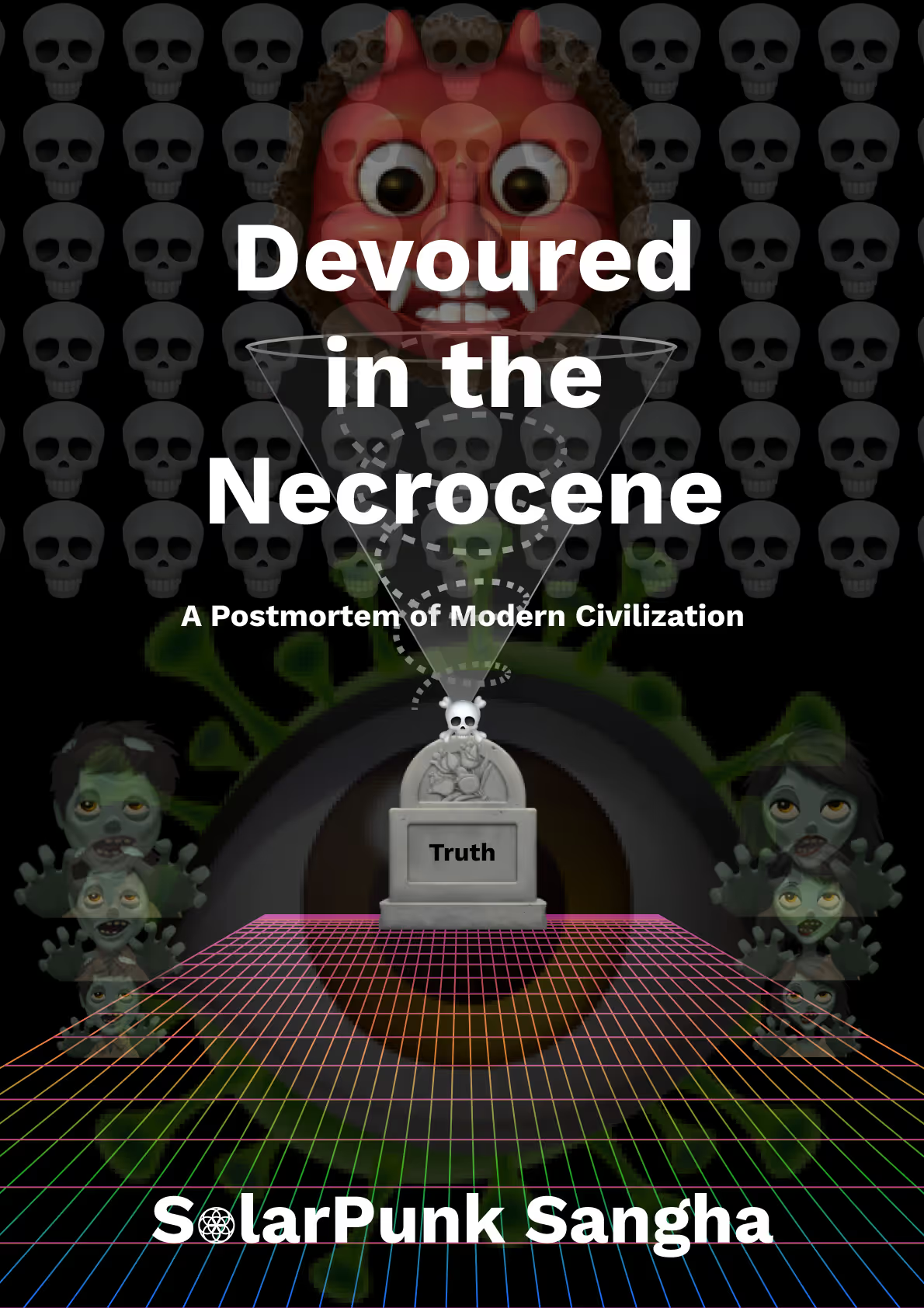Instruments (Necrocene)
Measured Outcomes
The Control Tools: Seemingly neutral systems that enforce power imbalances.
🔮 Sustainability Theorems
A cross-domain analysis of Political, Economic, Cultural, and Ecological theories.
Political Theory
Voting
Economic Theory
Money
Cultural Theory
Education
Ecological Theory
Biopower
Designs participation as performance—hoarding real decision-making behind hollow rituals like voting or surveys.
📑 Observations
Establishing a triage containing observations of social experience.
🪞 Self-Enquiry
When I use the primary Instruments of change—like Voting or Money—am I genuinely exerting influence, or am I mostly managing my compliance within a system of Biopower that governs life itself?
🩺 Diagnosis Questions
1. Do instruments of participation (e.g., voting) lead to real change?
2. Is education geared toward critical thinking or indoctrination?
3. Does biopower manage populations rather than enhance life?
Related Variables
- Voter turnout and efficacy
- Educational outcomes vs. employment
- Biometric surveillance coverage
"We offered them elections and statehood, they chose violence instead."
🩻 Targeted Organ
The Voice Box
Capacity for Political Will
🧾 Rationale
To render Palestinian political voice meaningless while maintaining democratic appearances.
💉 Extraction/Cultivation
Allowing symbolic elections while ensuring they cannot change material conditions or achieve sovereignty.
😷 Defense/Propagation
Civic Duty: Framing participation in broken systems as "political maturity."
❌ Tetrad Analysis
- Object of Perception: Participation / Agency
- ENHANCES: Illusion of participation; measurable compliance; bureaucratic management
- OBSOLESCES: Actual agency; substantive democracy; critical consciousness
- RETRIEVES: Rituals of allegiance and feudal homage in modern bureaucratic forms
- REVERSES INTO: Instruments of change become tools for managing consent to one's own domination
📝 Partial Diagnosis
Tools of Oppression: Instruments like voting, money, education, and biopower are corrupted to measure and enforce compliance rather than empowerment.
⚗️ Research Repository
🔮 Engagement Circle
🧊 Life Course
🎓 Case Study
Standardized Testing in Public Education (1990s-present)
The proliferation of high-stakes testing demonstrates how educational instruments operate as biopower, sorting populations, disciplining both students and teachers, while creating market opportunities for testing companies.
Sources: Educational Testing Service Research | National Education Policy Center | Brookings Institution Education Analysis
📚 Literature
"Discipline and Punish" by Michel Foucault (1975)
Foucault's analysis of how institutions shape subjects through disciplinary power, revealing how voting, education, and other instruments function as forms of biopower that create docile bodies.




